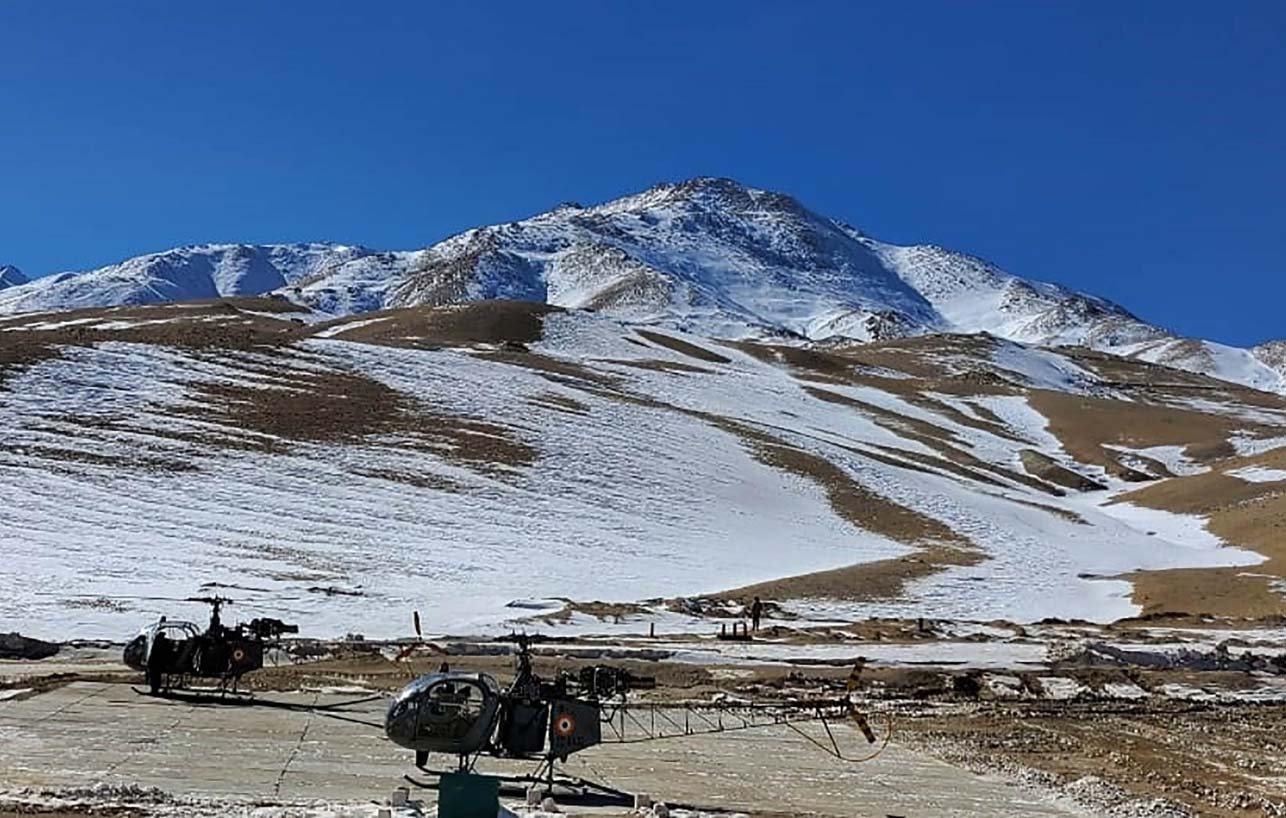
With China Fomenting Trouble At Multiple Points, Mixed Success Along LAC
By GANESH BHATT
NEW DELHI, (IANS) – China has been indulging in provocative acts along the LAC in Ladakh, Arunachal Pradesh, and Sikkim but the Indian Army is also taking strong action in response.
In recent years, the People’s Liberation Army of China has been carrying out provocative acts along the Indo-China border in Galwan Valley in Ladakh in 2000, Pangong in eastern Ladakh, and in 2022 in Yangtse in Arunachal Pradesh.
Depsang Plains standoff precedes the Galwan Valley clash. The dispute at Despang started when barricades were placed by the PLA to stop the Indian Army personnel from reaching their patrolling point. After this, the Indian Army also took strong action in response.
Tensions arose in Eastern Ladakh after the PLA violated the agreements and transgressed the Line of Actual Control (LAC) in several places.
To normalize the situation, Corps Commander level talks were initiated by both countries in 2020. While both militaries have disengaged from the northern and southern banks of the Pangong Tso, Gogra, and the Hot Springs area, tensions remain in Depsang Plains and Demchok.
Both sides have failed to make any headway about Depsang and Demchok. India has sought de-escalation, which entails the return of all additional troops and equipment in forward areas of the LAC to their pre-April 2020 positions.
However, China has been showing no inclination for the same and wants to treat the current holding positions as the new status quo. Meanwhile, airstrips have been built by China on many areas along the border.
There are already conflicts between the armies of the two countries on Pangong Lake. Now, China is rapidly building bridges in Pangong Lake.
Satellite images have revealed that China is constructing an eight-meter-wide bridge across Pangong Lake in Eastern Ladakh, and the work continued in winter despite severe cold.
This bridge is built on the south side of the Chinese army base located on the northern side of Pangong Lake. During the confrontation with India in the year 2020, China had made its temporary hospital and go down at this place.
On June 15, 2020, at least 20 Indian Army personnel were killed in a fierce clash with Chinese troops in the Galwan Valley in eastern Ladakh. At least 42 Chinese soldiers were killed in the clash.
After increasing its strength, the PLA on December 9 tried to get access to the strategically important 17,000 feet high peak in Arunachal Pradesh. The Chinese Army reached the LAC on December 9 with 300 soldiers, under a well-planned conspiracy.
However, India was already cautious, and the number of Indian soldiers increased in proportion to the Chinese army here. Fully prepared and aware Indian Army troops defeated the Chinese Army in their attempt, and in this clash, a total of 34 Indians and more than 40 Chinese soldiers got injured, sources said.
The Indian Army is also particularly cautious about China in the eastern Ladakh region. China has been making efforts to “dominate the unfenced places with the intent of occupying the land”. According to a media report, these things were also said in the note presented in the DGP and IGP meeting held in Delhi.
In such circumstances, the officials have suggested to the government that border tourism can be rapidly promoted in strategic areas such as Turtuk or Siachen sector and Daulat Beg Oldie or Depsang plains.
According to experts, Karakoram Pass can also be opened for trekking and hiking for domestic tourists.
Minister of State for Defense Ajay Bhatt said that the government is moving forward to promote tourism in the border areas.
The Telecom Regulatory Authority of India has issued recommendations on improving telecom coverage and backhaul infrastructure in remote areas of Ladakh. The challenges faced by people living near the LAC in accessing high-speed internet, critical for accessing online education and digital banking, have been highlighted.




